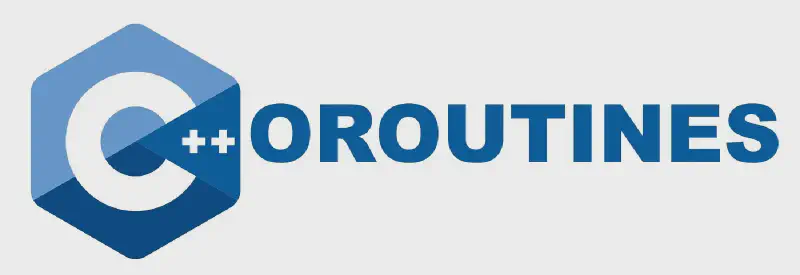
Unlocking Asynchronous Power: An Introduction to C++20 Coroutines#
The advent of C++20 brought a significant evolution to the language: coroutines. This powerful feature is set to transform how developers approach asynchronous programming, making complex non-blocking operations feel as straightforward as their synchronous counterparts. By integrating coroutines directly into the language standard, C++ aims to provide a native and efficient mechanism for managing concurrent tasks, even within a single thread. Here are the key takeaways regarding C++20 Coroutines:
- Introduction to C++20: Coroutines were introduced as a new standard feature in C++20, marking a major enhancement for asynchronous programming.
- Synchronous-like Asynchronous Code: They enable developers to write asynchronous logic using a syntax and flow that closely mirrors traditional synchronous code, significantly improving readability and maintainability.
- Single-Threaded Asynchronicity: A crucial aspect is their ability to facilitate asynchronous operations within a single execution thread, illustrating that asynchronicity is not exclusively tied to multi-threading.
- Compiler-Level Implementation: From the compiler’s perspective, coroutines are primarily “syntax sugar,” meaning they are a high-level abstraction that the compiler translates into a series of function calls rather than creating new threads.
- No Implicit Thread Creation: This design ensures that the use of coroutines does not inherently lead to the creation of additional operating system threads, optimizing resource utilization and control.
- Core Components: Practical applications of coroutines, such as building a simple timer, require implementing fundamental components like
AwaitableandPromiseclasses, which are essential for defining coroutine behavior. Coroutines represent a pivotal step in modern C++’s evolution, addressing a long-standing challenge of complex asynchronous programming. Historically, C++ developers have navigated a landscape of callbacks, threads, futures, and external libraries to manage concurrent operations, often resulting in intricate, error-prone code. The native integration of coroutines in C++20 provides a streamlined, language-level solution that aligns C++ with other contemporary languages offeringasync/awaitpatterns. This simplification promises enhanced developer productivity, reduced boilerplate, and positions C++ as an even more compelling choice for high-performance, I/O-bound applications in domains such as network services, game engines, and embedded systems, where efficient resource orchestration is critical. The full embrace of coroutines is poised to usher in a new era of C++ concurrency, fostering a more intuitive and expressive programming paradigm. As the C++ ecosystem adapts, we can expect a surge in libraries and frameworks leveraging this feature, potentially reducing reliance on certain external concurrency management tools. Future advancements will likely concentrate on refined abstractions built atop coroutines, making them even more accessible for complex system design, alongside continuous compiler optimizations for coroutine state management and stackless execution. For C++ developers, mastering coroutines will become an increasingly vital skill, empowering them to construct highly scalable and responsive applications with unprecedented clarity and efficiency.
